Komodo dragon babies hatch at zoo in Spain for first time in a decade. Take a look
After months of careful monitoring, a zoo in Spain welcomed five Komodo dragon babies. Their hatching is a milestone for conservation of the nearly-extinct lizard species, park officials said.
Komodo dragons are the world’s largest lizard species, growing over 8 feet long and weighing over 150 pounds, wildlife experts said. With only 1,500 of the animals left in the wild and 220 in conservation centers, the lizards are in danger of becoming extinct.
Bioparc Fuengirola in Málaga is home to a pair of adult Komodo dragons, a female named Ora and a male named Reo. As part of ongoing conservation efforts, the pair mated in June, the zoo said in a news release.
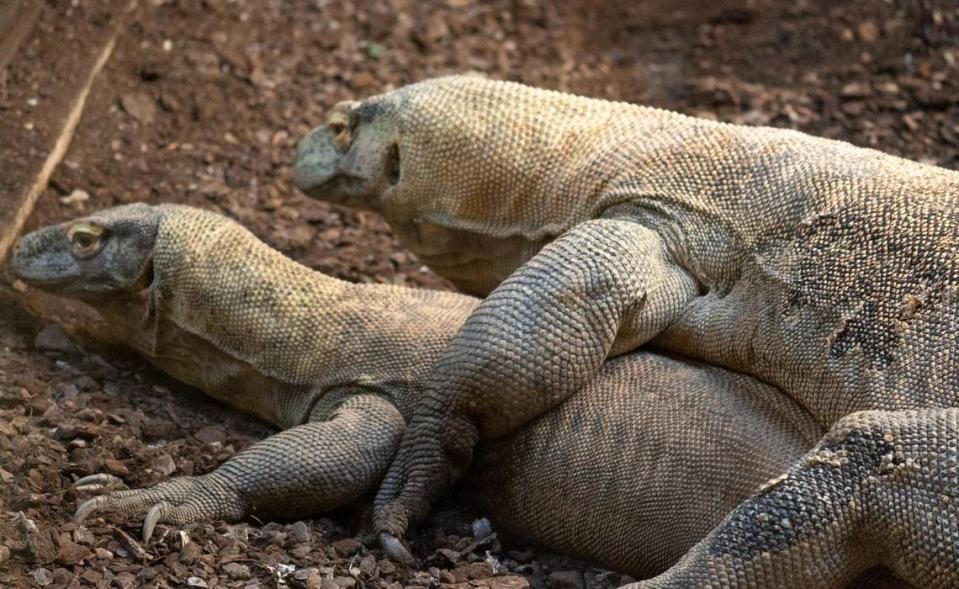
Zookeepers noticed Ora becoming restless and realized she had just laid a clutch of eggs. They searched her enclosure and discovered 12 eggs, some buried over 3 feet deep, officials said.
Female Komodo dragons monitor their eggs for a few weeks before disengaging from them. To give the eggs the best chance of surviving, zookeepers incubated the eggs for almost eight months.
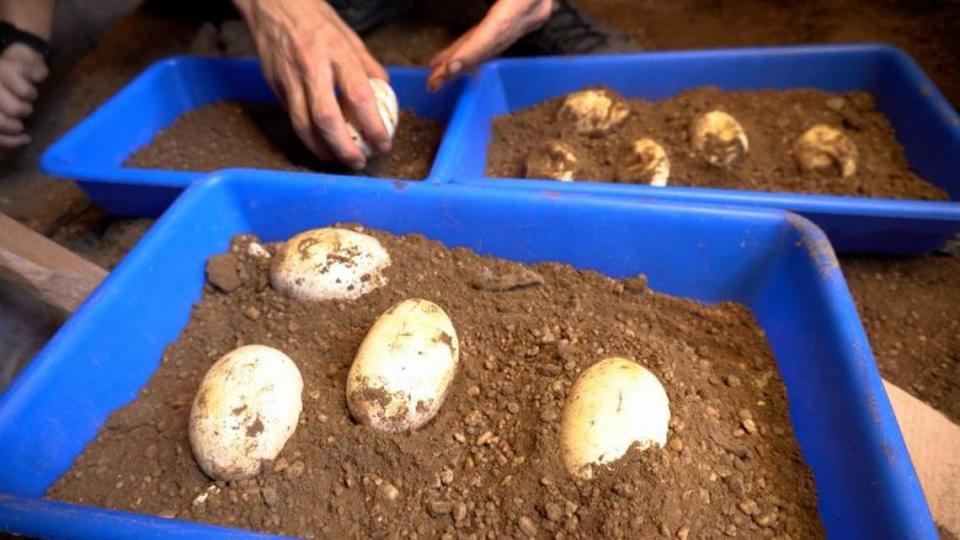
Caretakers checked the eggs on an almost daily basis, adjusting humidity and temperature of the incubators to mimic seasonal variations experienced in the wild. The tedious work finally paid off at the beginning of March, officials said in a Tuesday, March 28, release.
The first baby dragon hatched from its shell. Soon after, four more eggs hatched.
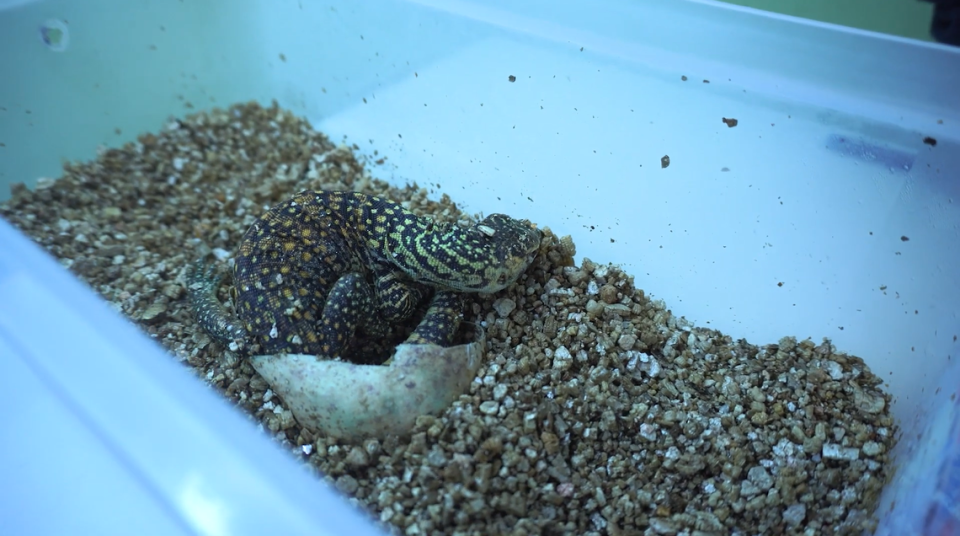
The biggest pups hatched on their own, Milagros Robledo, the zoo’s head of herpetology, said in the release. The smaller ones were still attached to their eggs and needed help. Photos show the hatchlings soon after emerging from the shells.
The Komodo dragon pups weigh between 1.7 and 4.2 ounces and measure between 11 and 17 inches long, Robledo said.
The babies were named Juanito, Fenix, Embum, Drakaris and Saya, officials said.
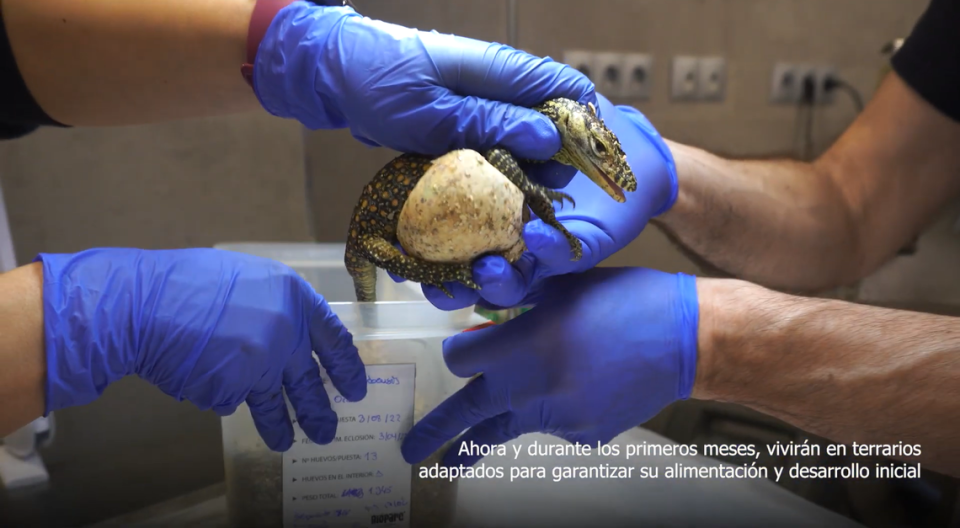
This is the first time in 10 years that Komodo dragons have been born at a zoo in Spain, the release said. It’s the fifth successful reproduction in Europe in the past decade.
In the wild, newly hatched Komodo dragons are entirely on their own. To simulate these conditions, caretakers are keeping the hatchlings in separate terrariums away from their parents. Keepers will monitor the diet and health of the pups as they grow.
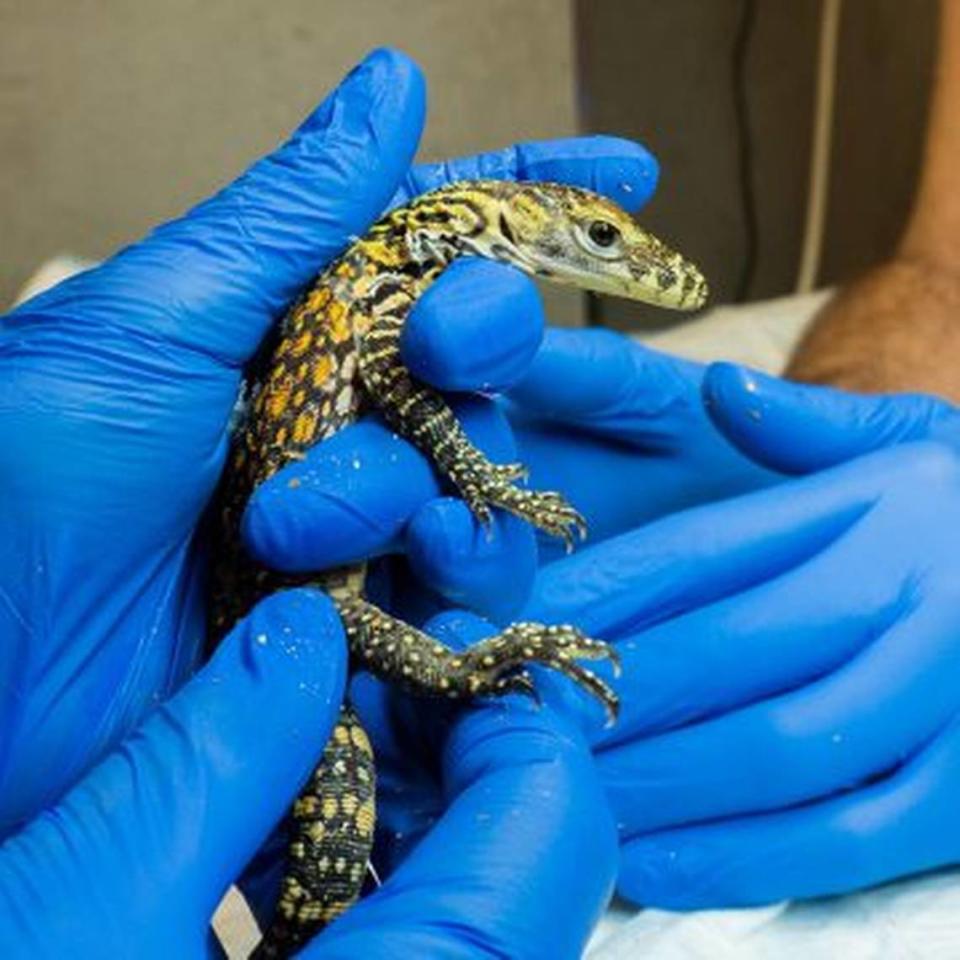
Bioparc Fuengirola is in the region of Málaga, about 330 miles southwest of Madrid.
Google Translate was used to translate news releases from Bioparc Fuengirola.
‘Little dragon’ found on uninhabited Australian island is a new species. Take a look
‘Water leak’ was actually pee from a python hiding in ceiling at cabin in South Africa
Creature of island mythology is real — and a new species, researchers in France say

 Yahoo Autos
Yahoo Autos 